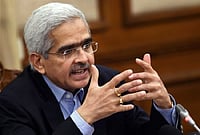The announcement of the Union Budget 2023-24 by Finance Minister Nirmala Sitharaman may just be a few weeks away but the tech sector’s hopes are not that new. With mass layoffs all around and effects of the COVID-19 pandemic slowly receding, the country’s tech sector has gone through a tough 2022 when compared with the massive boom it saw in 2020 and 2021.
As India progresses to become a digital capability hub, industry experts share inputs on what the technology and IT sector expectations are from the Budget 2023-24.
In 2022, regardless of the tech layoffs, the Indian technology space has many feathers to decorate its cap with. From increased adoption of digital services and surging demand in new-age technologies like artificial intelligence (AI) etc., to the launch of 5G services, the Indian tech sector has been readily serving the 'good change' while also bracing for the new ones.
As of today, it is the ‘digital’ that is driving growth in domestic as well as international markets. Since key trends and demands largely revolve around electronics, manufacturing, artificial intelligence, e-commerce, ed-tech, fintech etc., here are some of the industry expectations from the upcoming Union Budget.
Tech Sector Expectations From The Budget 2023 - Explained
In a pre-budget memorandum, the IT industry body, National Association of Software and Service Companies (NASSCOM) refers to the issue of Safe Harbour Rules (SHR). According to Investopedia, a safe harbor is a legal provision to sidestep or eliminate legal or regulatory liability in certain situations, provided that certain conditions are met. In the case of SHR and transfer pricing, the former is used as a dispute resolution mechanism for the latter's issues.
On this, NASSCOM mentions that currently, safe harbour margins have only been notified for companies with a turnover up to Rs 200 crore. As a result, a very limited number of companies are able to opt for this policy. Recommending a review of the policy, NASSCOM has asked the government to notify safe harbour margins for entities with a turnover up to Rs 1,000 crore, rationalise the safe harbour mark-ups in line with the benchmarks available and increase the applicability threshold.
Since investments in technology are considered to have a multiplier effect on the economy, the importance of investing in the right research and development (R&D), becomes imperative. On this, the Federation of Indian Chambers of Commerce & Industry (FICCI), in a pre-budget memorandum says, “To nurture new ideas and technologies through the early phase there is a need to create 2-3 National R&D Ideas Incubators (like the MIT Media Lab) jointly owned by industry and academia, along with centres of expertise. To de-risk and nurture disruptive technologies, critical cross-disciplinary research is needed bringing together experts from biology, chemistry, mathematics, computer science, data analytics, AI, physics, engineering, and industry mentors/start-up founders with an experience in commercializing technologies.”
Deloitte believes that in 2021–22, India’s technology sector witnessed an outstanding performance on many fronts. Acknowledging the same along with the challenges, PN Sudarshan, Partner, Technology, Media & Telecommunications Industry Leader, Deloitte India suggests that in Budget 2023, the government should prescribe fixed timelines for the closure of Advance Pricing Agreement (APA) as it would help in enhancing the bandwidth of APA teams.
Referring to the importance of amendment(s) to the Customs Act, Sudarshan adds, “Considering the recent disputes on import of technologically advanced products, the government should come forth with suitable amendments to Section 18. It should facilitate clearance of goods upon submission of bond and do away with the requirement of furnishing a bank guarantee. This would facilitate trade and curtail the financial hardships on the importer.”
Since climate change has been another top agenda for 2022 across sectors, it is also being looked at by some leaders of the tech sector.
Naivedya Agarwal, Co-Founder and CEO, Runaya, while sharing the Budget 2023 expectations says, “Climate change is one of the biggest challenges that we are facing currently. We feel that 2023's budget should take into consideration this aspect with an urgent need. Companies in the manufacturing space should be rewarded for developing new technologies and adopting sustainable business practices. Infrastructure can see a positive momentum in this year's Budget; with ease of doing business supplemented by tax reforms at the centerstage. Simplifying mechanisms like Advance Pricing Agreement, Safe Harbour Rules are foreseeable.”































